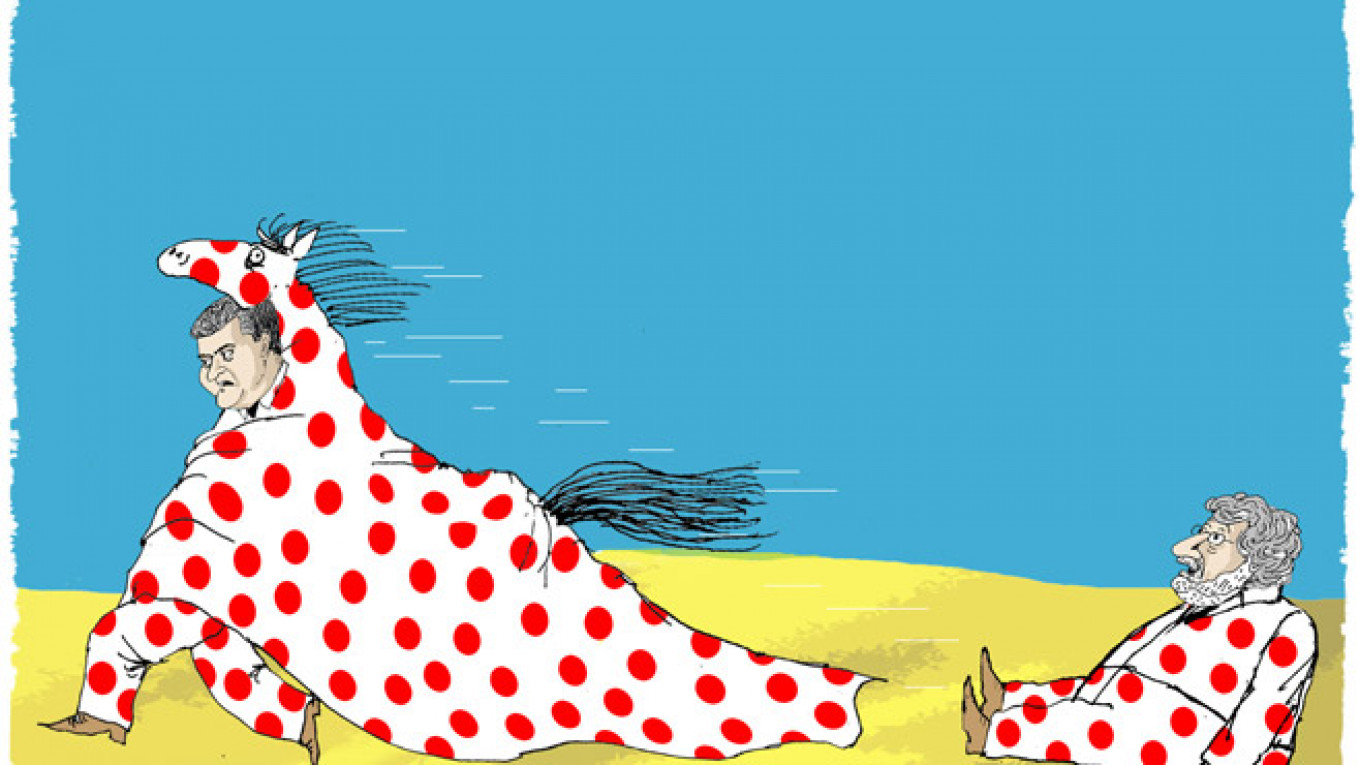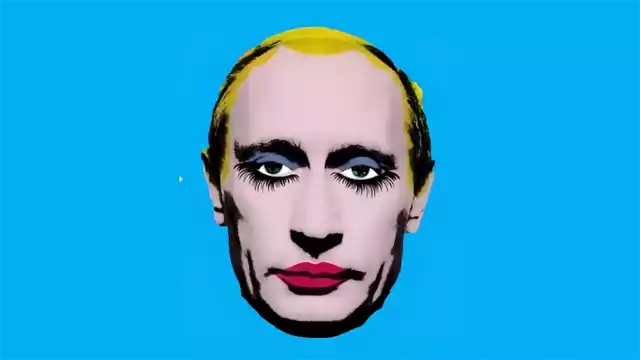The conflict between Ukrainian billionaire Ihor Kolomoisky and the Kiev authorities is just heating up, so it is difficult to predict how it will ultimately end. However, at this point it seems Kolomoisky is in a losing position, despite the weakness of the current Ukrainian government and the considerable political and paramilitary resources the oligarch has at his disposal.
If Kolomoisky has enough good sense to see that himself, he will abandon his adventurism and remain in politics as a central figure of the opposition. That way, he can have his revenge later.
But however this drama plays out, the current conflict was altogether predictable. This is first because history shows that revolutionaries eventually butt heads in the struggle to play the "alpha male." When the stature of the men is lower, and the stakes are lower, a threatening gesture is sometimes enough to settle the matter, although the contest occasionally ends in the taking of life.
But it is clear that two such revolutionary oligarchs as Kolomoisky and Ukrainian President Petro Poroshenko cannot peacefully coexist in the same political arena, much less in the same economic market.
The second reason is no less obvious. Ukraine underwent what might be called a "two-headed revolution" in that two groups made it happen — the Ukrainian people and those forces that, while not in the public eye, had "primed the pump" for Maidan from the very start.
Not only were historical laws a factor, but also the interests of those who push, control and teach the "rules of life" to the current Ukrainian authorities. Even during a difficult post-revolutionary period, no ruling national authority in the world could tolerate the existence of uncontrolled and essentially partisan militias. The most that could be hoped for is a temporary alliance with them, but even then, only until those militias focus their sights on the foundations of the new state.
Kolomoisky is a classic example of this. No government in the world could have tolerated someone such as Kolomoisky, who appropriated the entire Dnipropetrovsk region and, relying on his private army, created a state within a state. Of course, that is not unusual in revolutionary times, but it is a temporary phenomenon that ends once the central government of any country facing such a problem gathers enough strength to put an end to the rogue elements.
Those who rule Ukraine from behind the scenes have also had a hand in recent events. It is both unwise and pointless to deny that certain forces are calling the shots from a distance. It is more important to understand whether such interference works to the benefit or detriment of Ukraine. In many cases it is detrimental, but in the current case I believe it is beneficial.
I imagine that a reluctant Poroshenko was willing to endure Kolomoisky with his private army and his personal regional fiefdom for some time, but that the West finally lost its patience with the extravagant oligarch and his endless tricks.
The fact that the West observes a conspiracy of silence regarding the many outrages in Ukraine so as not to undermine the image of its protege does not also mean that the West is blind and deaf. And that is why the West feels that, in order to continue its support of the Ukrainian authorities, it is necessary for them to project a more acceptable image.
Dressing up Ukraine in attire suitable for civilized society is an ongoing process. Those baggy trousers, high deerskin boots and forelock are very interesting, but only for a folk festival. That is why the West insisted that Ukraine change into "gentlemen's" clothing in the form of presidential elections, parliamentary elections and reforms — albeit, all of questionable legitimacy.
Now Ukraine will have to shave that ridiculous forelock, curled and twisted as it is by Kolomoisky and his militia.
If Kiev does not bring the Right Sector into line, its turn will come as well. That is, if Poroshenko cannot instill order among the Ukrainian far-right himself, the time will come when the West makes it a precondition for further assistance.
In fact, the West has probably already been hinting as much, which would explain why Poroshenko has unexpectedly made a number of public statements attacking the "Bandera bandits," and why he has decided to pull all volunteer militias that openly refuse to abide by the Minsk agreement out of the so-called "anti-terrorist operations."
The European Union already has more than it wants of regressive and backward-looking elements in Germany and the recent upsurge in activity by far-right forces in Greece. The West is probably more than a little peeved to have to also look at television images showing wild far-right groups roaming the streets of Kiev.
Does the conflict with Kolomoisky weaken or strengthen Ukraine? In the short run, of course, it weakens the country because it threatens the already unstable balance of Ukrainian political forces. But in the long run, it strengthens the country.
After all, a picture of official Kiev without armed bandits and marauders always looks better than one with the government embracing them.
Pyotr Romanov is a journalist and historian.
A Message from The Moscow Times:
Dear readers,
We are facing unprecedented challenges. Russia's Prosecutor General's Office has designated The Moscow Times as an "undesirable" organization, criminalizing our work and putting our staff at risk of prosecution. This follows our earlier unjust labeling as a "foreign agent."
These actions are direct attempts to silence independent journalism in Russia. The authorities claim our work "discredits the decisions of the Russian leadership." We see things differently: we strive to provide accurate, unbiased reporting on Russia.
We, the journalists of The Moscow Times, refuse to be silenced. But to continue our work, we need your help.
Your support, no matter how small, makes a world of difference. If you can, please support us monthly starting from just $2. It's quick to set up, and every contribution makes a significant impact.
By supporting The Moscow Times, you're defending open, independent journalism in the face of repression. Thank you for standing with us.
Remind me later.






